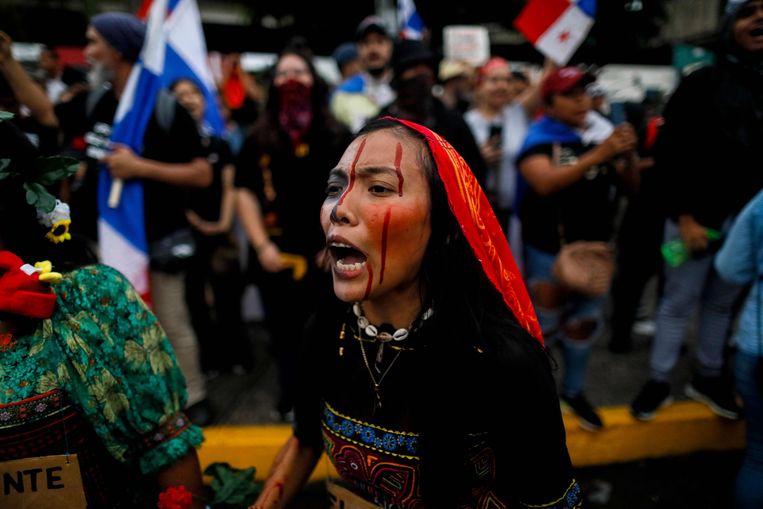
A rebellion against a permit for Central America’s largest copper mine could have consequences for the global energy transition

The protest is against the exploitation of the Cobre Panamá copper mine located in the central province of Colon. On October 20, the Panamanian Congress extended a contract with a Canadian mining company to extract copper. The concessionaire, First Quantum Minerals, was first granted a mining permit in 1997 and now has a twenty-year lease on an area of 12,000 hectares.
This went the wrong way with a large portion of Panamanians. According to them, the government of President Laurentino Cortizo, who took office in 2019, concluded the agreement behind the backs of the people. The decision is said to have been debated, approved and approved in three days without any consultation.
Energy conversion
In Panama City, people are venting their anger en masse, but demonstrations are also taking place elsewhere. The Pan-American Highway, which crosses the country from north to south, and major ports are also blocked. The protests have claimed four lives till date.
As a result of the growing protests and blockades, First Quantum Minerals began shutting down its operations in the Central American country this week. This could have consequences for the global energy transition, in which copper plays an important role.
Panama ranks fourteenth in 2022 in terms of contribution to global copper production and electric car manufacturers such as Tesla work with copper from there. Cobre Panama produced 350,000 tons of copper in the same year, accounting for 1 percent of global copper production.
Habitat of tribal people
Gobre Panama is located in a protected nature reserve that is home to indigenous peoples such as the Ngäbe-Buglé, Panama’s largest indigenous community. So environmentalists filed a lawsuit against the concession granted in 2009. And it paid off: in 2017, the Supreme Court ruled that the permit was unconstitutional because no public tender was held. But by the time detailed negotiations for a new contract began in 2021, the mine was already operating at full capacity.
The new deal was announced in March 2023 and quickly passed through parliament in October. In their opinion, the economic benefits, including a 5 percent contribution to Panama’s GDP, do not outweigh the environmental disadvantages. That is why an appeal has been made to the Supreme Court to declare this permission unconstitutional. The Panamanian government has said it will not revoke the permit and is awaiting the court’s decision.
Meanwhile, the sound has changed on the Panamanian streets. What began as a response to an apparent contract extension has grown in recent weeks into a broader national protest against the government. Panamanians hold the government responsible for the high cost of living, corruption and lack of investment in the public sector. So students and union members have allied themselves with environmentalists and tribal groups.

“Coffee fanatic. Friendly zombie aficionado. Devoted pop culture practitioner. Evil travel advocate. Typical organizer.”
